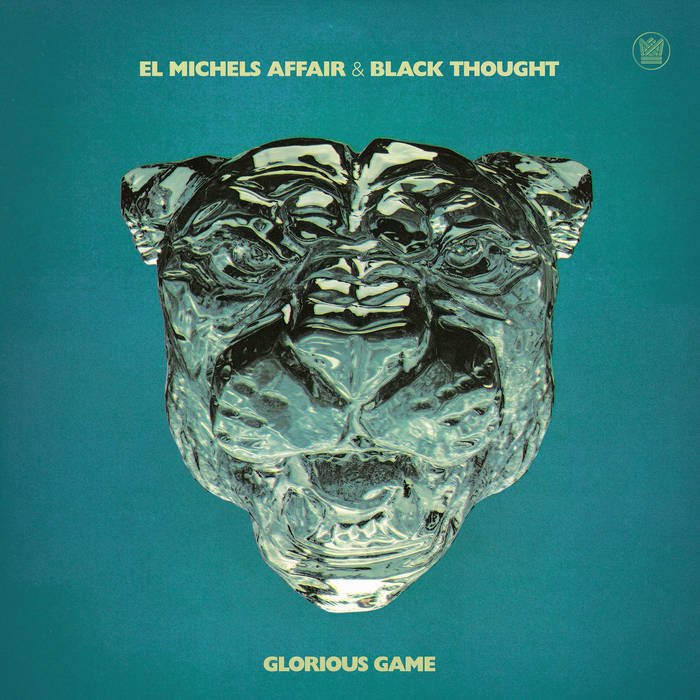by Calvin Staropoli (@cal_staro)
Black Thought simply isn’t capable of phoning it in. He’s never been one to chase a trend or a paycheck. Even as he approaches half a century, he still raps like he’s got something to prove. On last year’s excellent Danger Mouse collaboration Cheat Codes, the Philadelphia native cemented his place among the great MCs. Now with Glorious Game, a collaboration with Brooklyn soul artist and producer Leon Michel, he’s able to step back and take a look back at what got him there in the first place.
Glorious Game started in 2020 with Leon Michel, AKA El Michels Affair, and Black Thought collaborating electronically. As a prolific producer and co-owner of Big Crown Records, Michel was able to use his back catalog of unreleased music as a musical playground. Instead of sitting on a hard drive, they were chopped up into beats and given new life here. He'd send Thought a beat, and within a day or so he'd get back a fully formed track. Listening to this album, It’d be easy to think Michel is pulling from some obscure 70s soul records, but the majority of the samples are from bands working today. His throwback, chop-up-the-soul style slots in perfectly with Thought’s storytelling, with nostalgia and gratitude to those who came before you being two major lyrical themes of the record. The sample choices feel like music Thought himself would probably have listened to back in the day. Michel weaves slick electric guitar loops, angelic “oohs” and “ahhs”, groovy bass lines, and a nice touch of woodwinds and horns to create beats that don’t call too much attention to itself, but rather serves as a laid-back, moody sonic spaces for Thought to work his magic.
Black Thought’s main focus on Glorious Game was making sure each song told a story. Tracks like album highlight “The Weather” place you right into the streets of South Philly where Thought was born and raised. “Powerlines full of pigeons and fly sneakers/that died a miserable death, hanging high in the heat”. He makes you feel the heat and energy of the city just as he did when he was a kid trying to prove his skills. It was a hard life, plagued with violence and money struggles, but time and perspective have allowed him to truly appreciate what he had. “I wouldn’t change a thing if I could,” he adds, basking in the nostalgia. While he does look back on it fondly, he also isn’t afraid to explore the harmful aspects of how he was raised. On “Hollow Way” he’s critical of a violent culture but is also empathetic to the reasons people feel violence is often their only resort. “For what it's came to, I ain't gon' say that I blame you/When you angry, ain’t no management to complain to”. All these aspects of his life and the culture he was raised in have made him who he is, and if there’s one thing he makes abundantly clear through his writing is that he is grateful for all of it, good and bad. His age has not made him jaded or angry. Instead he sounds more empathetic and gracious than ever.
On closing track “Alter Ego,” Thought is open about losing his drive to create, and how he learned to reclaim himself. For the first time on the record, he addresses the listener directly. “If you're listenin', there's a way to make it to that other side”. It’s comforting to know that even a legend like Black Thought still doubts himself just like everyone else, and that he was able to overcome that doubt, adapt to his circumstances, and come back even stronger. Even after all these years, he’s still learning to be himself. While Leon Michel uses current music as a gateway to the musical past, Black Thought explores his own past to better understand who he is now.

